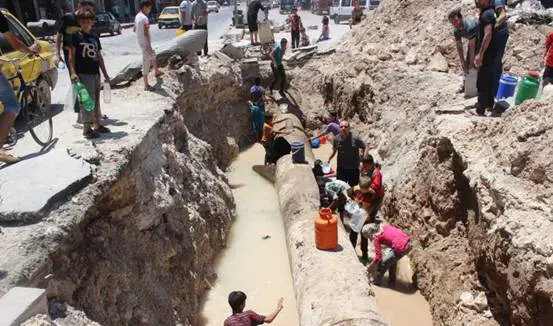By APD writer Melo M. Acuña
MANILA – The international humanitarian organization, International Committee of the Red Cross (ICRC) expressed fears for the civilian population of northeast Syria with the continuing closure of an important regional water pumping station.
In a statement sent from Geneva shortly before 10:00 P.M., Friday, it was learned the Allouk pumping station which serves over 400,000 people in and around Hasakeh, has been out of service since October 30. The ICRC and the Syrian Arab Red Crescent have been implementing emergency measures to find alternative sources of water for the people in the region.
“It’s imperative that we find a solution to this nascent water crisis. A water station that serves 400,000 people is a critical piece of infrastructure that must be put into action. This is another example of civilians who are not taking part in the conflict suffering from it nonetheless,” said Fabrizio Carboni, ICRC’s regional director for the Near and Middle East.
“We call on all parties to ensure safe access to conduct any necessary repairs,” he further said.
International Humanitarian Law mandates that basic needs of civilians are met, even in times of conflict. In northeast Syria, the infrastructure including water stations and dams for water supply systems happen to be located near the frontlines, and it is critical that they are protected at all times.
According to the ICRC statement, the humanitarian organization and SARC are following the water situation and implementing their emergency response to help alleviate the impact as much as they can. As of November 3, ICRC distributed some 460,000 liters of drinking water and regular support to Al Hol Camp, Areesha Camp, centers for internally-displaced people in Hasekah City, and places of detention.
The ICRC calls on all parties to the conflict to respect civilian life by taking every possible measure to protect and respect civilians and civilian infrastructure, and to allow safe passage for those who want to escape the fighting in search of safety.
(ASIA PACIFIC DAILY)
 简体中文
简体中文

